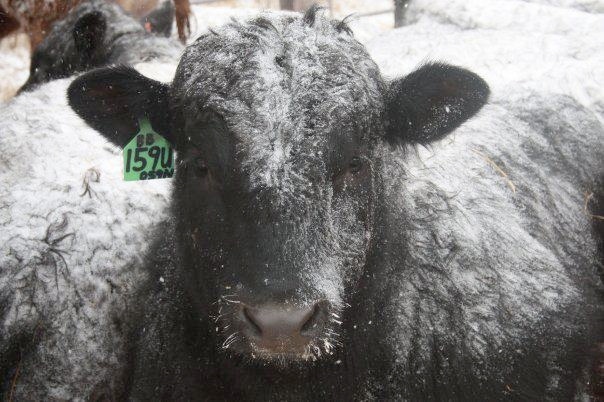The goal posts on climate and cattle will continue to move. Why aren’t we already applauding the beef industry’s environmental improvements?
December 8, 2021

For the global elite, sustainability and addressing climate change is a top priority, and if you haven’t noticed, the anti-beef articles have really ramped up in regards to this topic.
Now, there will be many companies and corporations, working with ranchers and feedlots, who will take advantage of incentives to become more “climate friendly,” and if you are an early adapter, you may even find increased profitability and sustainability for your efforts.
However, I’m here to say the obvious — you’ll never be sustainable enough for what they have in mind. You’ll never be green enough. Until maybe you’re growing crops for fake meat that is. Just like the animal rights activists who ask for an inch, they’ll never be satisfied until they take a mile.
The goal posts will keep moving, despite your best efforts. And when we really look at the beef industry, why aren’t we being celebrated for our ability to produce more beef using fewer natural resources that ever before?
Is that not the definition of sustainability? Does the nutrition provided in each three-ounce serving of beef not count? How about the benefits of the hundreds of by-products we enjoy from beef? Has there truly been a fair sustainability study on what the beef cow can do from nose-to-tail compared to a single-use synthetic product made in a lab?
I think you already know the answers to these questions. If not, ponder them while you browse today’s Trending Headlines and figure out how your ranch is going to survive these blatant and outright attacks to make you obsolete.
1. “Coming to a grocery store near you: low carbon beef” by Kate Gibson for CBS News
Gibson writes, “Meat eaters worried about climate change can soon put their money where their mouth is by purchasing steaks produced with a reduced carbon footprint. Americans already willing to pay more for organic food and grass-fed cattle would likely fork over more money for more sustainable steak, reasons Colin Beal, whose Stillwater, Oklahoma-based company, Low Carbon Beef (LCB), certifies cattle produced with 10% lower greenhouse gas emissions than the industry average.”
2. “Israeli firm is the latest to print out a ‘real beef’ lab-grown steak” by Ben Coxworth for New Atlas
Coxworth writes, “Earlier this year, we heard how two separate groups had developed the world's first lab-grown ribeye steak mand Waygu beef. Israeli startup MeaTech 3D is now joining their ranks, with a "cultivated steak" of its own.”
3. “How long will strong beef demand continue?” by Lee Schulz for Wisconsin Star Farmer
Schulz writes, “You have likely heard someone say, ‘Beef demand must be excellent as prices are sharply higher.’ This may or may not be true. Demand for beef is a schedule of quantities consumers are willing, and able, to buy over a range of prices. As you would expect, consumers buy less when prices rise. They buy more when prices fall. Importantly, demand is the entire set of those price and quantity pairs.”
4. “Cows are the new coal” by Aryn Baker for TIME
According to the article, “A new report produced by the FAIRR Initiative, an investor network worth about $45 trillion that is focused on the environmental, social and governance risks and opportunities of intensive livestock production, shows that the meat and dairy industries (including livestock suppliers to McDonalds, Walmart and Costco) is undermining COP26 pledges on methane reduction, by not tracking their own emissions and by failing to track those of their third-party suppliers.”
5. “Mission methane: More food companies turn to feed additives to reduce carbon footprint” by Lisa Held for Fortune
Held writes, “At the agriculture industry’s biggest conference on sustainability in November, Kelly Bengston, a senior vice president at Starbucks, said the company formed a new partnership in 2021 to begin to source milk from cows fed Agolin, a Swiss-made feed supplement derived from essential oils, to help reduce its methane emissions.
The opinions of Amanda Radke are not necessarily those of beefmagazine.com or Farm Progress.
About the Author(s)
You May Also Like





